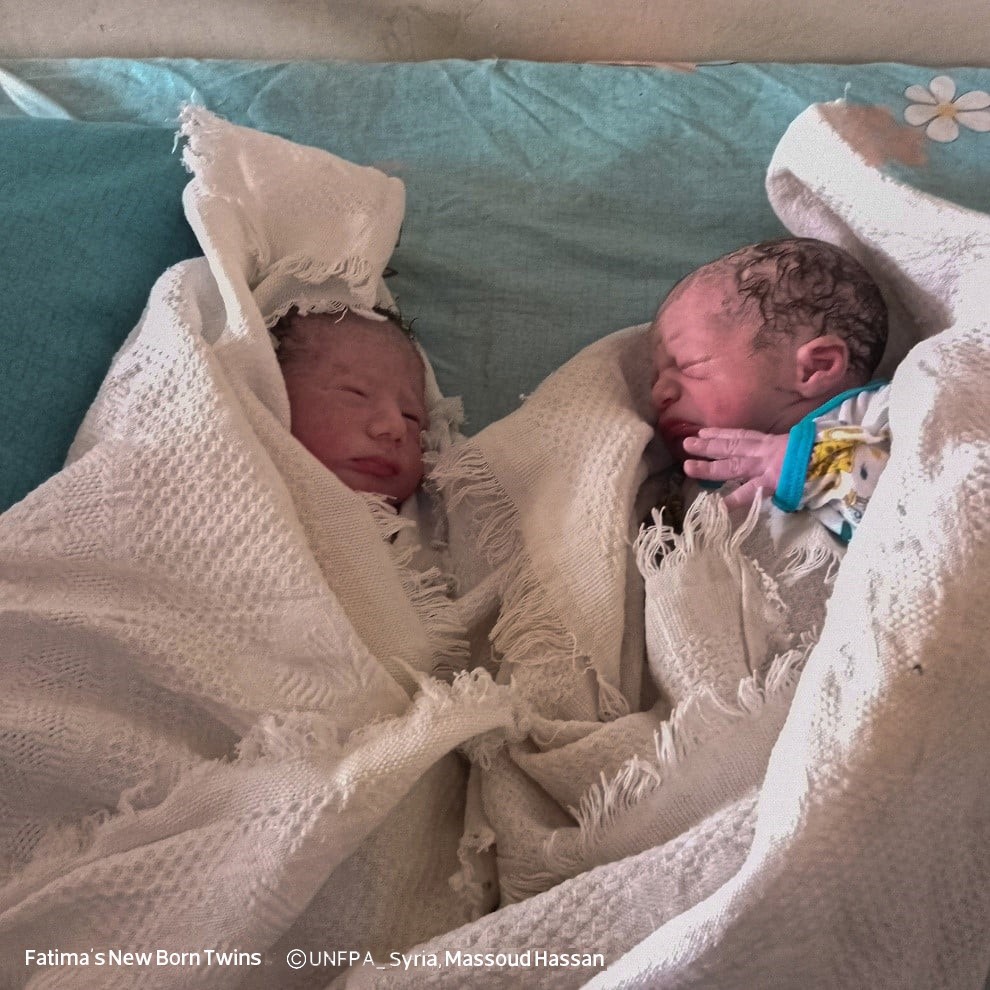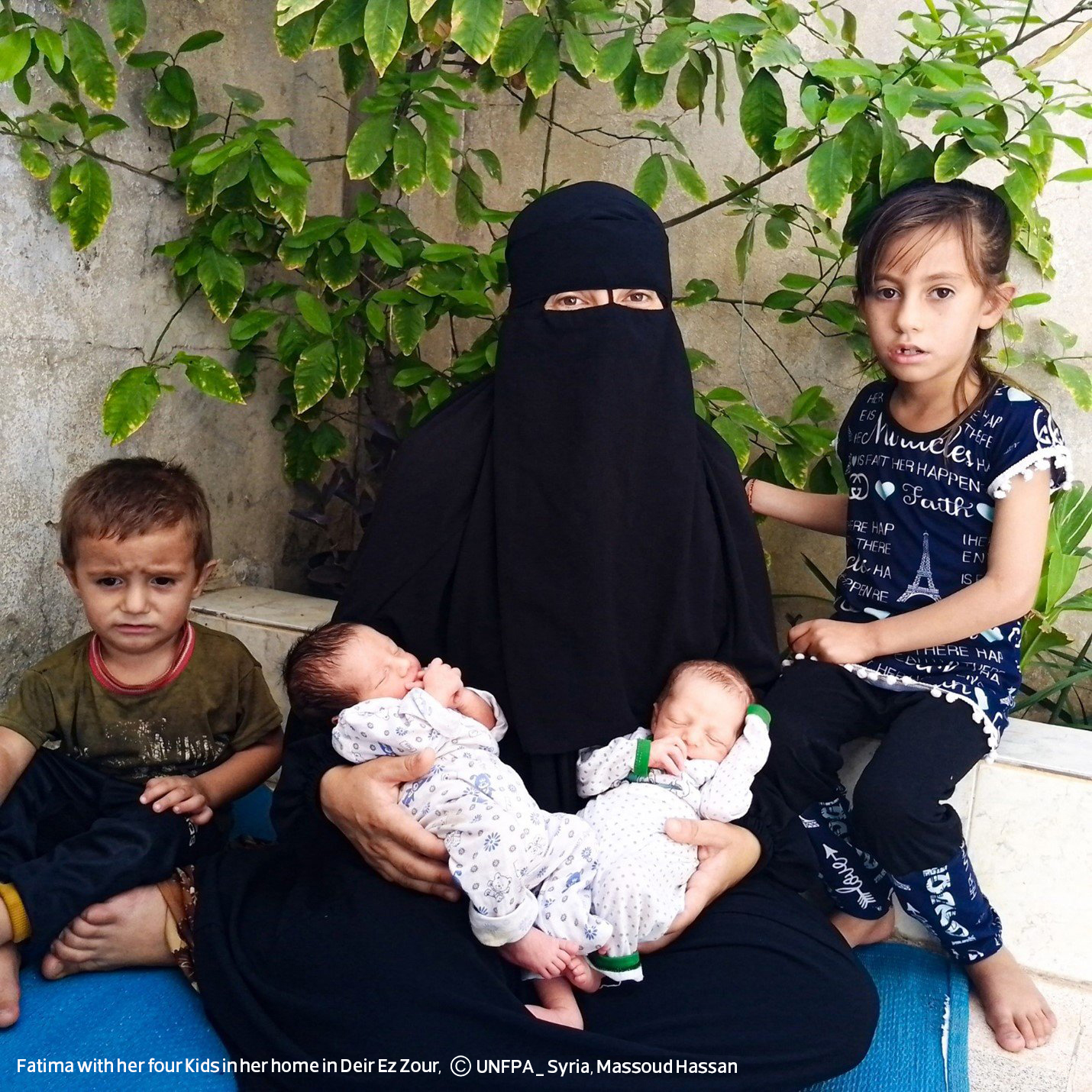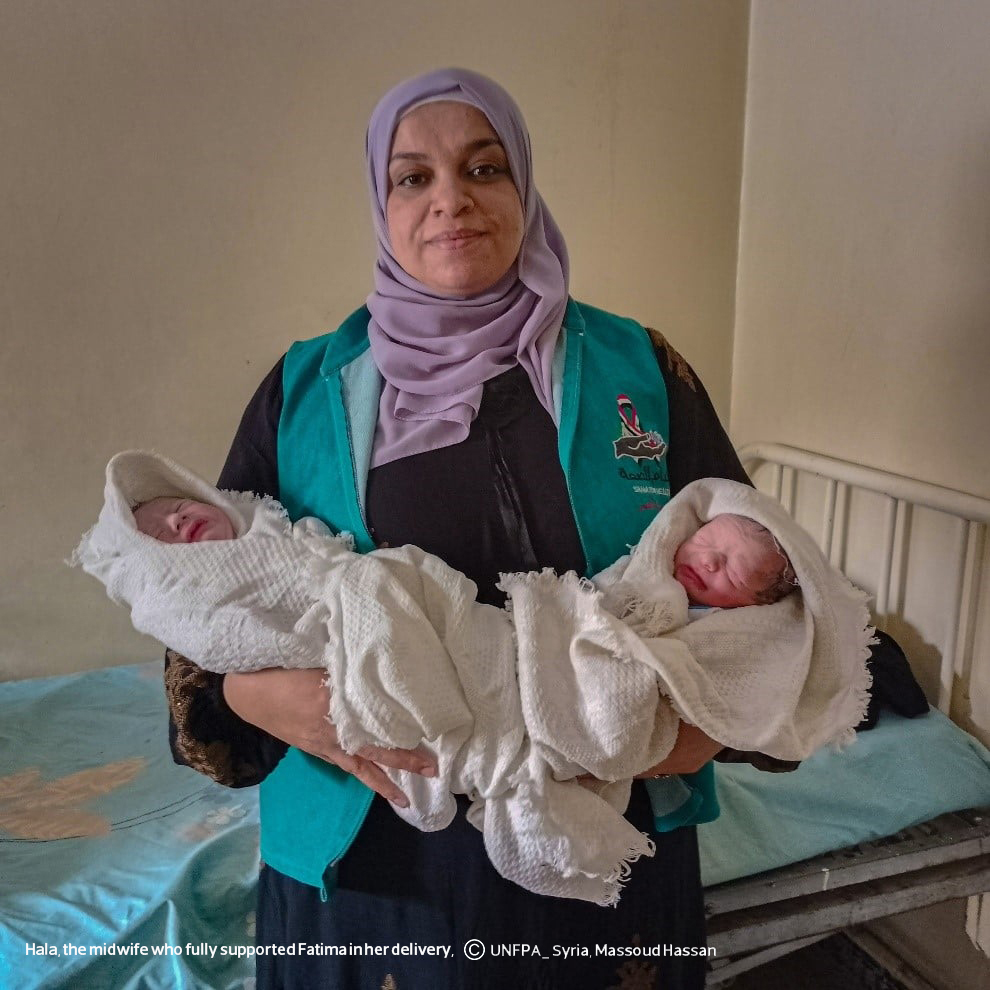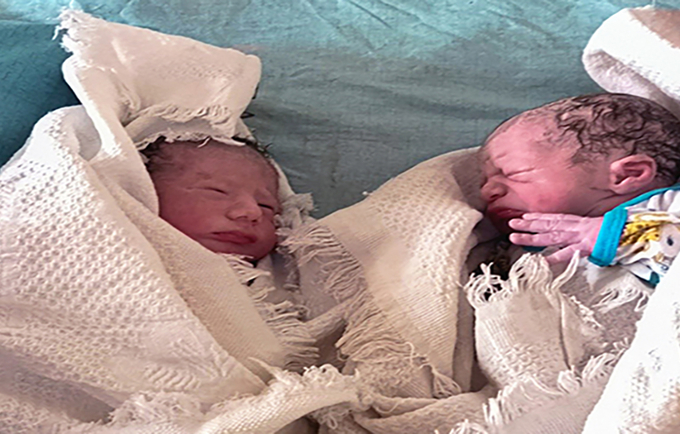A heavily pregnant Fatima jolted awake in the early hours of morning to the sounds of gunfire and screams as violent clashes escalated in Deir Ezzor Governorate in Eastern Syria. Her husband who went out to check what is happening, returned shortly signaling her to leave immediately with their children Aya and Youssef. He decided to stay with his eldest son Mohammad to look out for their house and livestock.
The journey of displacement
A journey of few minutes from Fatima’s residence to the bank of the Euphrates River took forever due to ferocious fighting and heavy shooting slashing the peacefulness of the early hours of that fateful morning. Fatima and her children joined a group of women neighbors and headed towards the river while avoiding exposed roads and taking shelter from bullets in trees and hills. A tough undertaking was to remain vigilant while making several stops hoping the fighting would subside and cajoling their children with fervent promises of pleasant surprises waiting at the other side of the river.
“The pregnancy made it impossible for me to carry Aya and Youssef and run to the river, which made us all easy targets for the gunshots,” said Fatima.
Two hours later, Fatima and the group of women arrived at the destination to find a docking boat waiting to carry them to the other side of the river.

Psychological Effects of Displacement
As Fatima started her journey of displacement, and being pregnant with twins, she was worried about having a safe delivery and her babies' wellbeing. Her plan to deliver at the local hospital in her town Thiban in eastern rural Deir Ezzor obviously was no longer feasible with no other alternative. As a result, Fatima started to suffer from psychological and physical symptoms such as insomnia, chronic anxiety, upset stomach, and loss of appetite.
“The most painful aspect of displacement is being separated from my husband, son, and parents during a time when I needed them the most. Life without them is very lonely,” she said while getting emotionally choked up, so she took a break to resume.
“The idea of giving birth alone in such difficult circumstances without my mother or husband terrified me greatly,” she said holding back tears.
Noticing her physical and psychological deterioration, the family hosting Fatima contacted a UNFPA-supported mobile team for reproductive health services and Gender-Based Violence interventions in the city of Al-Mayadeen.

“Throughout the operation, I kept my children, my husband, and my parents in my thoughts and wished they were here with me to hear the twins' first cry. I was unable to move but the midwife named Hala handled my twins and I will be forever recognizant for her assistance and care,” Fatima said.
Emergency Response
The mobile team of UNFPA’s local partner Sham for Health (SFH) conducted three visits in a row to check on Fatima’s health and pregnancy. She received life-saving reproductive health services, and psychosocial support sessions to ease her fears due to displacement and separation.
Along the same lines, the mobile team communicated with the World Health Organization (WHO) to refer Fatima to a local hospital in Al-Mayadin city to secure a safe delivery.
“The mobile team’s visits eased my worry and tension, especially after they confirmed that I will have a safe birth at the hospital. The gynecologist also reassured me about my twins and gave me a list of instructions, including when to get in touch with the team to seek medical assistance,” Fatima explained.

A Cesarean Delivery
On the morning of 14 September 2023, the UNFPA-supported mobile team transferred Fatima to WHO contracted local hospital in Al-Mayadin to undergo a cesarean section after she went into labor.
“Throughout the operation, I kept my children, my husband, and my parents in my thoughts and wished they were here with me to hear the twins' first cry. I was unable to move but the midwife named Hala handled my twins and I will be forever recognizant for her assistance and care,” she said. “I just wish for peace to prevail in the whole of Syria, for displaced people to return to their homes safely and no one to be separated from their loved ones,” Fatima concluded.
The UNFPA-supported mobile team continues to visit Fatima on a regular basis to provide her with reproductive health services. Since the beginning of 2023, nearly 850 pregnant women in eastern Syria received safe birth services provided by UNFPA-supported midwives group.
UNFPA provides life-saving reproductive health and gender-based violence services to women, girls, and men through its local partners in Syria, and by installing fixed clinics in areas with large populations and deploying mobile teams to target people in villages and remote rural areas.


